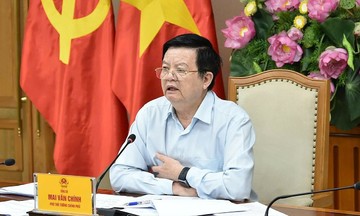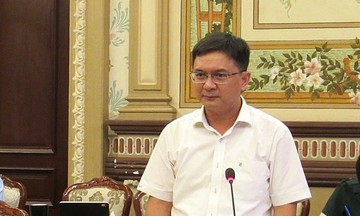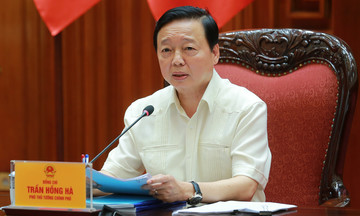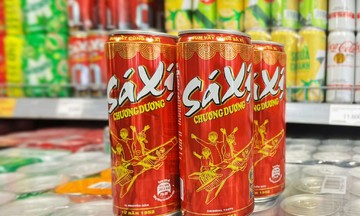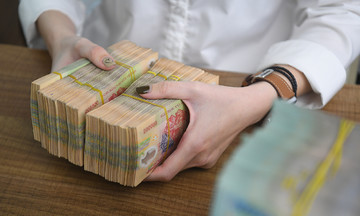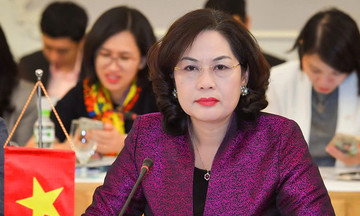Banking officials discussed this at a recent meeting with credit institutions and businesses to implement Decree 232 on gold trading.
Following the General Secretary's directive, the state bank is urgently studying international experience to propose establishing a national gold exchange. Other options include allowing gold to be traded on the commodities exchange or creating a gold trading platform within Vietnam's international financial center.
With the newly issued Decree 232, the state's monopoly on gold bars has officially ended. Qualified businesses and commercial banks will now be allowed to produce gold bars and import gold material.
To help implement the new decree and encourage businesses to participate in the market, the state bank is also expediting guidance documents. These will specify the registration process for gold import and bar production licenses.
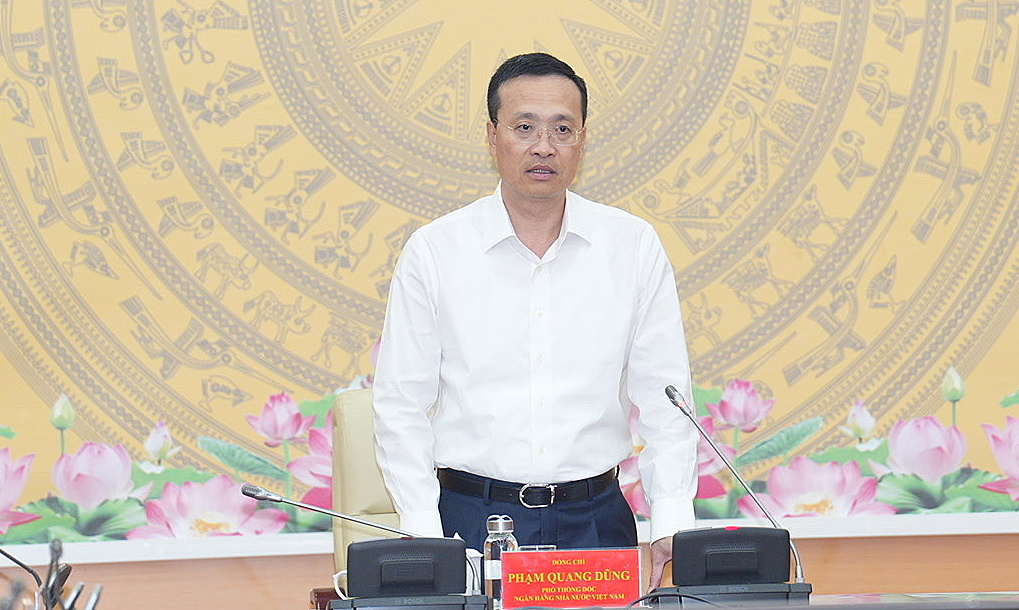 |
Deputy Governor Pham Quang Dung at the meeting with credit institutions and businesses to implement Decree 232 on gold trading. Photo: VGP |
Deputy Governor Pham Quang Dung at the meeting with credit institutions and businesses to implement Decree 232 on gold trading. Photo: VGP
The state bank will coordinate with the Ministry of Public Security, the Government Inspectorate, and local authorities to inspect and ensure the gold market operates safely. This collaboration aims to prevent price fluctuations from impacting financial, monetary, and macroeconomic stability.
At the government's request, the state bank directed branch directors to coordinate with relevant agencies in conducting unscheduled inspections of some businesses. The focus is on compliance with gold trading laws, accounting practices, invoices and vouchers, anti-money laundering measures, and preventing manipulation, hoarding, smuggling, and speculation. Inspections began in September, with results to be reported to the state bank in October.
The state bank requires all credit institutions, particularly those involved in gold trading, to strictly adhere to regulations. Manipulation, hoarding, smuggling, speculation, and illegal profiteering that destabilize the market are prohibited.
Banks need to strengthen internal controls and detect signs of price manipulation, collusion, and artificial shortages. They must also comply with information and reporting regulations on gold bar trading, including publicly listing buying and selling prices. Managing e-commerce activities, applying digital technology, and fully implementing anti-money laundering regulations, accounting practices, invoice and voucher requirements, and tax obligations are also crucial.
The state bank also directed banks and businesses to cooperate closely with police, customs, tax, and market management authorities when requested to prevent smuggling, hoarding, speculation, and illegal gold trading.
Quynh Trang



